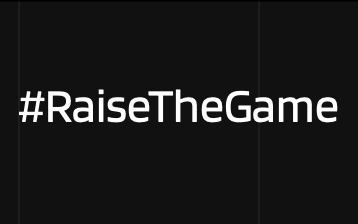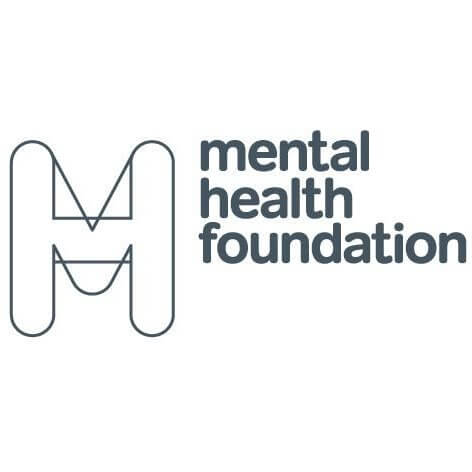Specific considerations








Key organisations & resources
 Visit website on #RaiseTheGame
Visit website on #RaiseTheGame #RaiseTheGame
RaiseTheGame is a collaborative and high-impact pledge to improve equality, diversity and inclusion in the games industry.
 Visit website on Code Coven
Visit website on Code Coven Code Coven
Code Coven is the first global accelerator and academy dedicated to forwarding opportunities for marginalised game developers at all levels.
 Visit website on Diversily
Visit website on Diversily Diversily
Diversily helps innovative organisations to embed diversity and inclusion into their core, to drive up performance and impact.
 Visit website on GamesAid
Visit website on GamesAid GamesAid
The games industry charity raising money for other UK charities working with children and young people.
 Visit website on Gayming Magazine
Visit website on Gayming Magazine Gayming Magazine
Games magazine and website covering all aspects of LGBTQ+ games culture.
 Visit website on Mental Health Foundation
Visit website on Mental Health Foundation Mental Health Foundation
Rigorous research and practical projects to identify what’s the most helpful, public information that empowers people to look after their mental health.
 Visit website on Mind
Visit website on Mind Mind
Mind empowers people to understand their mental health and the choices available to them.
 Visit website on Safe In Our World
Visit website on Safe In Our World Safe In Our World
The main goal of Safe In Our World is to create and foster worldwide mental health awareness within the video game industry.
 Visit website on Samaritans
Visit website on Samaritans Samaritans
Samaritans supports workplaces with a range of programmes for a variety of different organisations.
 Visit website on Stonewall
Visit website on Stonewall Stonewall
Helping to build a workplace that works for LGBTQ+ people.
 Visit website on Ukie
Visit website on Ukie Ukie
The trade body for the UK games and interactive entertainment industry.
Calendar events

International Men’s Day
International Men’s Day celebrates worldwide the positive value men bring to the world, their families and communities.
Learn more about International Men’s Day
International Day for the Elimination of Violence Against Women
This campaign, led by the UN Secretary-General and UN Women since 2008, aims to prevent and eliminate violence against women and girls around the world, calling for global action to increase awareness, promote advocacy and create opportunities for discussion on challenges and solutions.
Learn more about International Day for the Elimination of Violence Against Women
World AIDS Day
World AIDS Day is a global movement to unite people in the fight against HIV and AIDS.
Learn more about World AIDS Day
International Day for the Abolition of Slavery
The International Day for the Abolition of Slavery marks the date of the adoption, by the General Assembly, of the United Nations Convention for the Suppression of the Traffic in Persons and of the Exploitation of the Prostitution of Others (resolution 317(IV) of 2 December 1949).
Learn more about International Day for the Abolition of Slavery
Human Rights Day
In the decades since the adoption of the Universal Declaration of Human Rights in 1948, human rights have become more recognised and more guaranteed across the globe.
Learn more about Human Rights Day
Time To Talk Day
Time to Talk Day is the nation’s biggest mental health conversation. Happening every year, it’s a day for friends, families, communities, and workplaces to come together to talk, listen and change lives.
Learn more about Time To Talk Day
International Day of Happiness
This campaign is a global celebration to mark the United Nations International Day of Happiness. It is coordinated by Action for Happiness, a non-profit movement of people from 160 countries, supported by a partnership of like-minded organisations.
Learn more about International Day of Happiness
Stress Awareness Month
Stress Awareness Month has been held every April since 1992 to raise awareness of the causes and cures for our modern-day stress epidemic
Learn more about Stress Awareness Month
Mental Health Awareness Week
Mental Health Awareness Week seeks to increase people’s awareness and understanding of anxiety by providing information on the things that can help prevent it from becoming a problem.
Learn more about Mental Health Awareness Week
National Day for Staff Networks
The National Day for Staff Networks is the world’s only nationwide day dedicated to recognising networks/resource groups and the incredible value they add to the workplace.
Learn more about National Day for Staff Networks
Carers Week
Carers Week is an annual campaign to raise awareness of caring, highlight the challenges unpaid carers face and recognise the contribution they make to families and communities throughout the UK.
Learn more about Carers Week
Samaritans Awareness Day
Samaritans Awareness Day is an annual campaign held every July 24 to underline the importance of lending an ear to those who are going through mental health problems.
Learn more about Samaritans Awareness Day
International Youth Day
International Youth Day is an annual observance dedicated to celebrating the potential of young people, raising awareness of challenges they face, and promoting their active engagement in socio-economic and political processes.
Learn more about International Youth Day
World Menopause Day
World Menopause Day is held every year on the 18th of October. The purpose of the day is to raise awareness of the menopause and the support options available for improving health and wellbeing. We encourage professionals and women to participate in this global awareness raising campaign by printing and sharing these materials, organising events to engage their communities, and sharing World Menopause Day social media posts.
Learn more about World Menopause Day
